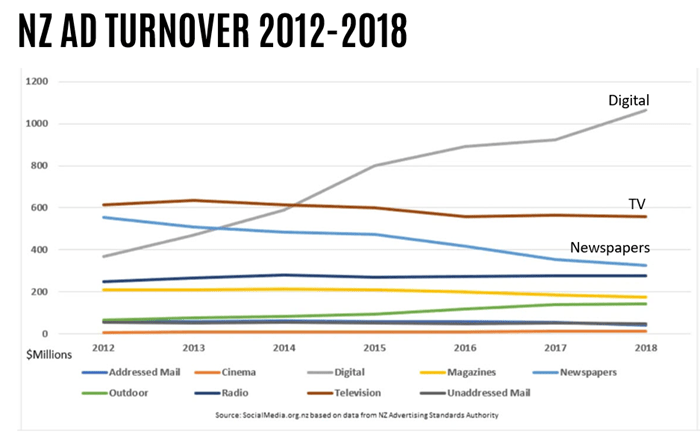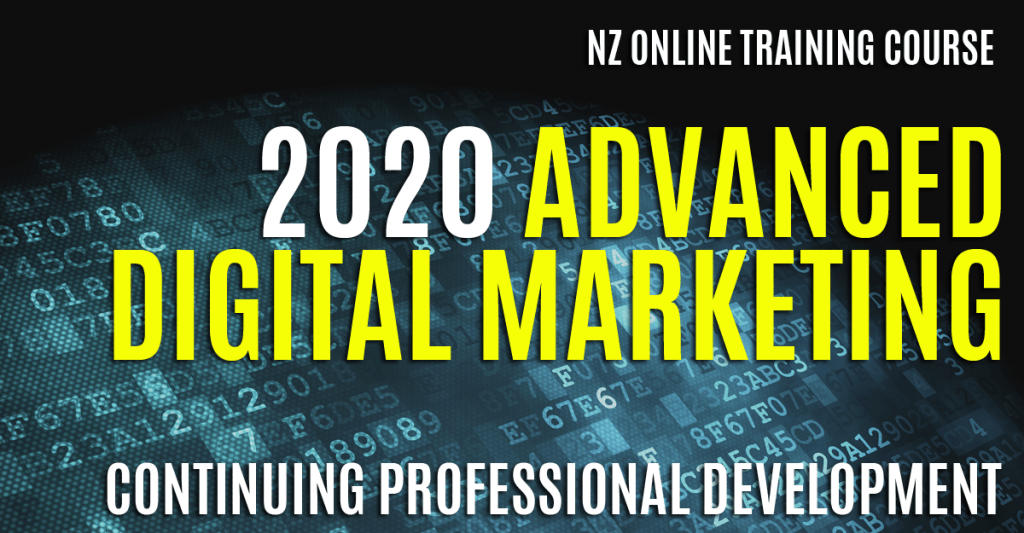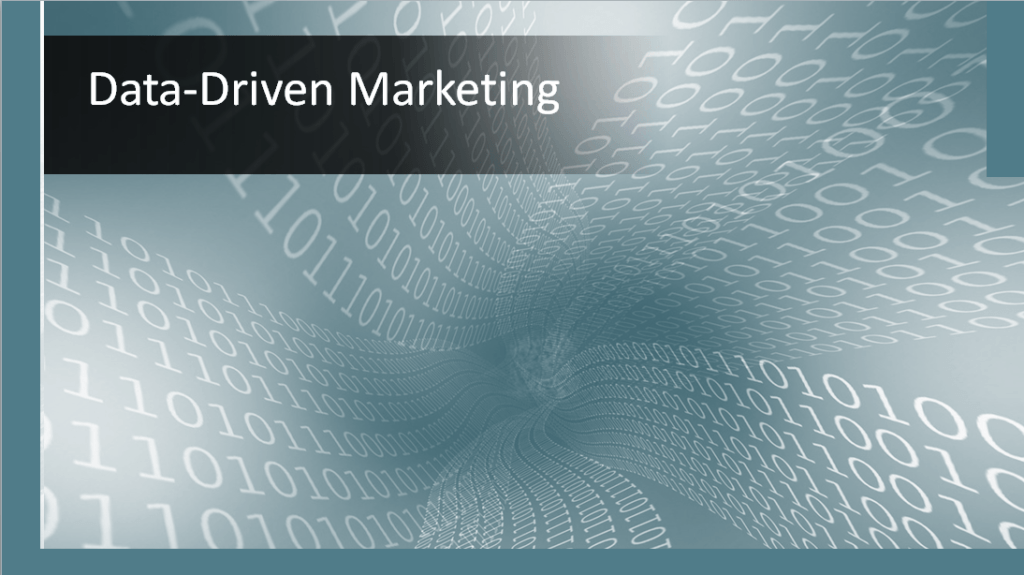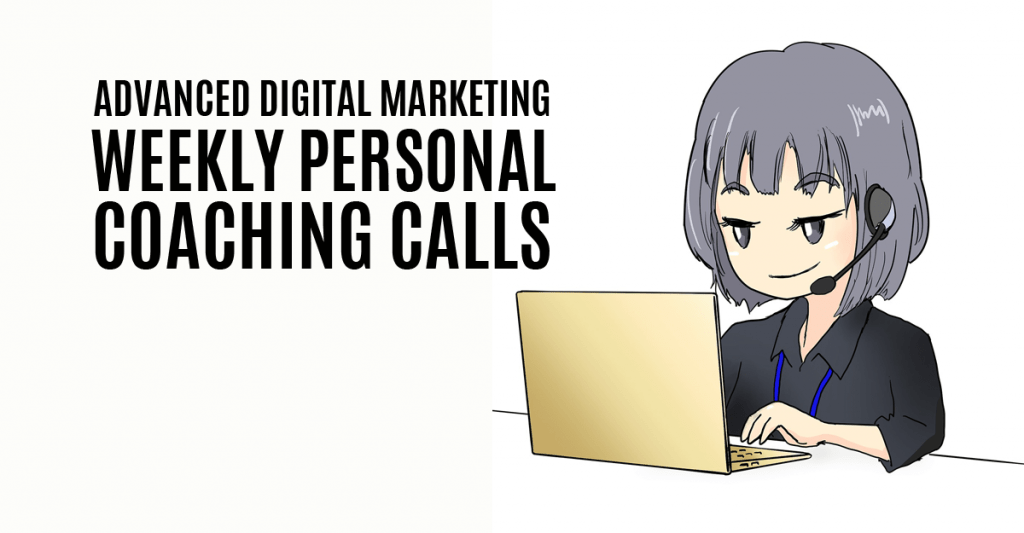Our clients tell us that one of their biggest challenges is staying up-to-date with Digital Marketing.
Is that a big problem?
You might not think so but there are some major risks (and plenty of minor annoyances) if you are not aware of the latest Digital Marketing developments.
For example:
The algorithms that dictate Google search results are constantly being updated. If you’ve never heard of BERT, chances are that your organisation’s rankings on Google are being steadily eroded.
Worse, your answers may be showing up at the very top of Google for zero-click searches but you won’t be getting any traffic as a result. That’s especially bad news because nearly two-thirds of mobile searches lead to zero-click results (i.e., searchers get the answer they want, your answer, from Google itself and don’t need to click any further).
Oh, and the strong growth in voice search thanks to Siri, Google Assistant and Amazon Alexa means that your website copy needs to get far more conversational. If you’re not meeting that need, there’s a very real risk that your competitors will.
Digital Marketing developments don’t stop with search, of course. Consumers in 2020 very much expect personalised digital experiences – – and more than half of them are likely to switch brands if you don’t make an effort to personalise their communications. But, wouldn’t you know it, things are not that easy.
Consumers demand personalisation but they also want their data kept private. A recent Roy Morgan privacy survey identified the top 10 pieces of information that consumers want kept very private; if you don’t know what those are, you could be suffering some very nasty repercussions, especially with new New Zealand privacy legislation expected to become law in 2020.
Another big deal in 2020: influencer marketing. The US Federal Trade Commission is making noises about cracking down on influencers who don’t adequately flag when they are being rewarded for promoting products. That new practice is going to have a chilling effect on influencers around the world, who will now go out of their way to highlight when they are promoting products and getting paid. Unfortunately, research tells us that consumers are getting more savvy and less willing to trust influencers unless they have earned that trust through their own non-sponsored efforts.
Social media is constantly in flux. Have you checked out TikTok yet? It’s getting massive numbers of downloads –– more than every other app but WhatsApp in 2019 — and Generation Z love it. But is it worth your effort as a marketing medium?
Meanwhile, Facebook continues its migration to mobile, and now 97% of Kiwi users access Facebook by mobile. For more than half, that’s now the only way that that they access the platform.
Social media is also coping with privacy issues and a move towards more controlled sharing (especially in response to the growth and growth of messaging apps). Instagram recently introduced its “Close Friends” initiative, enabling users to restrict the sharing of chosen posts to a designated group of friends.
Oh, and some potentially fatal news on the display advertising front: In January 2020 Google announced that it will stop supporting third-party cookies in its Chrome browser within two years. Traditional methods of tracking consumers across the web are about to fail. New initiatives are being discussed, such as the IAB’s Project REAC, so it definitely won’t be business as usual for much longer.
Those developments are simply the tip of the iceberg. Every day brings more and more Digital Marketing initiatives.
And here’s another key reason why it’s essential to stay up-to-date on Digital Marketing:
Digital is now New Zealand’s biggest advertising medium by far.
For the year ended December 31 2018, NZ advertisers spent a total of 1.062 Billion Dollars on Digital Advertising, representing 40.33% of the total $2.633 billion advertising expenditure for the year. That total has continued to grow strongly in 2019.
So how do you keep up-to-date with these constant Digital Marketing developments?
More importantly, how do you separate the wheat from the chaff? How do you decide which new developments are important for NZ businesses and which are largely irrelevant?
That’s where we come in — with the benefit of 40+ years of NZ marketing and 20+ years of digital marketing experience. We analyse, interpret and then highlight the key developments that you need to know about.
And we share that information with you in one of three ways:
- Through our Advanced Digital Marketing 2020 Continuing Professional Development online training course.
- Through our accompanying Weekly Personal Coaching Calls, where you can get your questions answered and receive personalised guidance.
- Through our in-person Half-Day Workshop on Advanced Digital Marketing, conducted in your own offices.
Here are more details on the three available options:
1. Advanced Digital Marketing Online Training Course
Here’s what you need to know about our online training course:
This course is dedicated to delivering the very latest information about Digital Marketing. It has been freshly developed for 2020.
This online training course covers exactly what you need to know to survive and prosper in 2020, across a variety of digital marketing disciplines, including:
- Social Media
- Search Marketing
- Online Video
- Marketing Automation
- Paid Advertising
- Artificial Intelligence
- Influencer Marketing
- Data-Driven Marketing
- Content Marketing
- Email Marketing
- Messaging
- Analytics
- Other Technologies to Watch
————————————-
Now let’s get onto the course details:
Advanced Digital Marketing 2020 is a thirteen-part online training course providing a comprehensive update on the latest developments in Digital Marketing that are relevant to New Zealand marketers.
Every lesson includes Action Steps so that you can start implementing what you’ve just learned, along with Quick Wins so that you can apply your newfound knowledge immediately.
This online training course is conducted on a web-based e-learning software platform, enabling course participants to proceed at their own pace, accessing materials online. This particular online training course provides content in a variety of multimedia forms, including text, images, videos, slideshows, flash-based presentations and PDF files. No special software is required to participate.
Course lessons will be provided weekly over thirteen parts, (but once each lesson is released, you can access it whenever you wish, anytime 24/7, in accordance with your own timetable). Interaction with the course tutor is enabled via email (with telephone backup if required).
Feedback from previous online training course participants
- “this was the best professional development course I have done in many years” – Mark R, senior Agency Exec responsible for social media
- “thought the information within was outstanding” – Ed P, General Manager
- “What I loved was that I started with a fairly rudimentary understanding of social media but have learned a lot – including where to find more information as I need it.” – Fiona W, Marketing Manager
- “I found it relevant, informative, topical, insightful and a bloody good read. It’s never evangelical, too techy, patronising, assumes that you know too much or too little about digital and has a warm sense of humour in the communication throughout which helped faciliate the learning process for me.” — Adrienne B, new media senior executive
- “Thanks for pointing me in the direction of this course! It’s been extremely enlightening” — Shayne P, design agency director
- “Rapt with what I have seen of the course” — Julia R, fashion editor
- “I’m really enjoying the course – learning a lot – and I know the two friends I persuaded to join us are also loving it.” — Lavinia C, designer
- “Am thoroughly enjoying the content!” – Kara B, magazine co-ordinator
- “I completed the first lesson today and found it really interesting and love the interaction already! I am so looking forward to the second lesson already …” — Annette B, public relations director
- “I was already engaging with social media and have been doing so for about 6 years or so. But, did I know how to use social media in a marketing and business sense? No, I simply did not. This course was a great way to show me how to do that.” — Sheryl K, online marketer
COURSE CREATION AND TUTORING
This course has been created and is tutored by Michael Carney.
WHO SHOULD TAKE THE COURSE
Any Business Owner, Marketing, Advertising, PR or Communications professional who already has a solid understanding of Digital Marketing but isn’t necessarily up to speed with the latest developments across all digital marketing disciplines.
COURSE CONTENTS
Here’s a high-level summary of what’s included in this Digital Marketing 2020 Continuing Professional Development online training course:

Lesson 1: Social Media Marketing
Social Media is constantly changing, and unless you’re working with the medium every day, you can quickly fall behind on the latest tools, techniques and developments. And that’s a problem because, according to Hootsuite’s recent Social Media Barometer Report (which surveyed 9000 marketers across 19 countries, including New Zealand), 90% of respondents think social media is important for staying competitive.
The top reasons that consumers reach out to brands on social are that they had a question (57%), they had an issue with a product or service (45%) or they wanted to commend a company on their product or service (34%). Are you listening? Responding? Winning friends and influencing prospects?
The Social Media Barometer Report also shows that social media will continue to be a critical platform for businesses and customers. Almost three quarters of respondents agree that social media will increasingly contribute to their company’s bottom line.
In this lesson, we explore the essentials that you need to know to take full advantage of the various social networks that matter to the 3.5 million Kiwis who use social media. Our coverage will naturally include Facebook, Instagram, Twitter, Pinterest, Snapchat and LinkedIn, which are amongst New Zealand’s most active online platforms.
Along the way, we’ll talk about new and evolved developments such as:
- the rise and rise of ephemeral social posts, with short-lived posts spreading from Snapchat to Instagram to Facebook to LinkedIn, YouTube and beyond
- the introduction of Instagram Close Friends and Threads, and why they matter
- what you need to know about live video on the social platforms (people spend 3x longer watching video which is Live compared to video which is no longer Live)
- Facebook’s nearly-universal adoption via mobile
- the power of longform social video, with Facebook Watch and Instagram’s IGTV leading the way
- what you need to know about TikTok, the new Gen Z darling
- the 114,000 hashtags banned by Instagram (and how to identify them)
- how Europe’s General Data Protection Regulation (GDPR) has transformed social media, and brought greater advertising transparency to Facebook in particular (and how you can use those changes to your commercial advantage)
- the perils and promises of reputation management, and the increasing importance of social listening in a social-centric world
- how President Trump, Cambridge Analytica and the alleged Russian involvement in the 2016 US Election has led to new certification tools that will, at the very least, complicate custom ad targeting within social media
- the new social media reality that generating leads has become more of a focus for marketers than cultivating a loyal fan base
- what you absolutely must know about Facebook’s new tool to let consumers rate Facebook businesses to whose ads they’ve responded (or see your reputation shredded)
We’ll also reveal which social media platforms are most favoured by marketers, and which are expected to attract more marketing dollars in 2020.

Lesson 2: Search
It will come as no surprise to learn that most online journeys, especially for unknown topics, begin with search engines. In New Zealand, the search engine of choice is predominantly Google — unless Siri, Alexa or Cortana is doing the searching for you on Bing, or you’re searching on Facebook (now 1.5 billion searches per day globally) or YouTube (billions of searches per month).
Consequently, there’s plenty to learn and stay updated about, including both Search Engine Optimisation (with its ever-changing rules and algorithms) and paid search advertising through the likes of Google Ads (formerly called AdWords).
Our Search lesson also covers a wide range of developing topics, including:
- what BERT when it comes to organic search results
- why and how zero-click searches can be both deadly problems and great opportunities
- how Voice Search is transforming the ways in which consumers gather information, and how that in turn requires a whole new approach to keyword optimisation
- what you need to know about Topic Clusters, to ensure your priority placement in search engine results
- the opportunities (and problems) inherent in Featured Snippets
- how keyword search is giving way to User Intent as the most meaningful search signal
- the dramatic growth in Natural Language Search
- the increasing importance of structured data as Google uses AI more and more to handle search results
- why E-A-T (Expertise, Authority, Trustworthiness) is an essential content metric in 2020
- the convergence of SEO and Content
- why speed is now vital to your search success
- how Location, Location, Location is now a search engine mantra as well

Lesson 3: Online Video
Video continues to be white-hot, with more and more marketers adding online video to their list of must-have tools and techniques for 2020. Not all videos are created equal, however, and we look at the demand for Vertical Videos (thanks, Instagram), Square Videos (preferred by the social networks), Outstream Videos and other permutations and combinations now on offer.
Along the way, we’ll discuss:
- what you need to know about the controversial new European Union Directive on Copyright in the Digital Single Market, and how Article 11 and Article 13 of this new legislation may have a stifling effect on content sharing, even for Kiwis
- the implications of the new reality that videos are replacing photos as the primary way we create and share memories
- how AI and the use of closed captions are making video content more searchable
- videos are getting shorter (because consumers are quick to skip)
- videos are getting longer (as more longform entertainment content is made available online, especially via Facebook Watch and IGTV)
We also talk about the fragmentation of the video streaming market in 2020 (and what that means for your ability to reach prospective customers). The transformation of television from linear, scheduled content to smorgasbord, watch-what-you-want-whenever-you-want offerings continues at a frantic pace.
Netflix’s position as dominant Subscription Video provider will be strenuously challenged in 2020 as new players start to attract attention, including:
- The merger of Sky’s Neon and Spark’s Lightbox, which promises to make an impact on Kiwi viewing habits in 2020
- Disney+, the online service combining the deep resources of Disney, Marvel, Star Wars, Pixar and the National Geographic channel, which launched in November 2019 in New Zealand and is expected to gain even more traction in 2020 as its original content expands.
- Apple TV+, also launched in November 2019 (globally). Although original content offerings are still slim, many partnerships have been announced and will start to roll out in the year ahead.
- Amazon Prime, whose extravagant investment in original content (including billions for its new Lord of the Rings prequel series) will continue to attract viewers
- HBO Max, also launching into the streaming market in 2020 (although probably not in New Zealand)
- Peacock, an advertising-supported free TV and Movie streaming service drawing on the resources of Universal and NBC. This is expected to remain a US-only service, but its ad-supported model will be closely watched.

Lesson 4: Marketing Automation
Marketing Automation — software tools designed to handle repetitive tasks such as emails and web actions — can improve your efficiency and even (if used effectively) enable you to take actions that would otherwise not be possible. In this lesson, we explore the capabilities of marketing automation platforms and consider if and how you might use them in your business.
Automation has given marketers an ever-increasing ability to personalise content on-the-fly, tailoring messages to both customers and prospects. As it turns out, consumers have noticed, they like it and they expect more and more messages to be customised just for them. In fact, research indicates that many consumers say that they are likely to ignore or abandon uncustomised messages in favour of more personal communications.
We look at the specific trends and opportunities in 2020, including:
- how marketing automation enables (demands?) omnichannel promotion and integration
- the rise in predictive lead scoring capabilities
- real-time personalisation of videos and other multimedia offerings
- the continuing importance of the human touch, despite all the technologies

Lesson 5: Paid Advertising
This lesson deals with what’s new and what’s important in the world of paid advertising. We take a deep dive into Programmatic Advertising and share what you need to know. Then we broaden our horizons to talk about Google Ads (building on the information provided in Lesson 2). And we discuss the surprising merits of using Amazon Ads to promote products listed in the ecommerce giant’s marketplace.
Next we tackle social advertising. As the social networks limit organic reach — the numbers of your followers who might see your social media posts just because they follow your page — organisations have turned to advertising to communicate their messages. In this lesson we examine how to make the most of your advertising options across various social media networks — and how to really take advantage of the enhanced targeting opportunities that social media provides.
In this lesson, we also discuss:
- the increasing importance and effectiveness of remarketing
- current and imminent online video advertising options
- the new dawn of digital billboards

Lesson 6: Artificial Intelligence
Many of the topics we’ve already covered include Artificial Intelligence already baked into the products. In this lesson, we look in more depth at what you need to know about Artificial Intelligence, its uses and its possibilities in marketing.
We also look at how AI just might reinvent messaging and customer service, through technologies such as Chatbots.
And we also cover:
- how Artificial Intelligence is currently being used in marketing
- Artificial Intelligence Tools that are available for you to use to improve your marketing operations
- planned and imminent developments for AI that may impact on your marketing effectiveness
- how AI is currently being used to assist consumers
- the implications (and the risks) of consumer uses of AI
Robots are now starting to write copy that’s better than yours. In 2019, OpenAI, a non-profit AI research company backed by the likes of Elon Musk, Peter Thiel, and Reid Hoffman, announced they built an AI model that essentially writes coherent paragraphs of text at scale. The model is called GPT-2 and it learned how to write this well by analyzing eight million web pages. If you’re a content marketer (or a copywriter), you have every reason to feel threatened.

Lesson 7: Influencer Marketing
The Internet in general, and social media in particular, has brought us thousands of influencers and micro-influencers, whose hustling on behalf of a product can encourage many of their followers to actually purchase said product.
Why? Because, according to a report by Nielsen, 92% of people trust recommendations from individuals over brands. And, let’s face it, many brands have brought that fate upon themselves by their own less-than-trustworthy behaviour.
In this lesson, we consider the importance of Influencer Marketing — and explore how to identify effective Kiwi micro-influencers who will be good ambassadors for your brand.
Lesson 8: Data-Driven Marketing
It seems that we’ve been talking about Big Data for years (and, in fact, we have). What matters in 2020, however, is not just Big Data but data of any size and scope — and, more importantly, how you use that data to shape your marketing, zigging and zagging as appropriate to reflect your learnings.
In earlier lessons, we’ve talked about various aspects of data-driven marketing, thanks to tools such as AI and Marketing Automation. In this lesson, we drill into more specific details, including:
- Predictive & Prescriptive analytics
- Lookalike modeling
- Data quality
- Consumer Engagement and User Experiences
- Holistic, 360-Degree Customer Profiles

Lesson 9: Content Marketing
According to the Content Marketing Institute, content marketing is a strategic marketing approach focused on creating and distributing valuable, relevant, and consistent content to attract and retain a clearly-defined audience — and, ultimately, to drive profitable customer action. It’s particularly relevant to B2B marketers, but it’s important for B2C as well. In this lesson we explore the principles of content marketing, including Creation, Curation and Content Pillars.
We also discuss:
- the vital importance of original, relevant content (78% of consumers say that personally relevant content increases their purchase intent)
- what Google Micro-Moments are and how to use them effectively to supercharge your content
- how Size Matters, when to use shortform and when longform is preferrable
Oh, and this lesson covers Privacy as well. The European General Data Protection Regulation (GDPR), which came into effect in mid-2018, has cast a long shadow around the world. Many governments are actively considering reshaping their own legislation to mimic the European requirements and major data users such as Facebook and Google have evolved their own rules and regulations to ensure that they are compliant with GDPR. We examine the implications for marketers in 2020, especially with the impending release of new NZ privacy legislation.

Lesson 10: Email Marketing
It’s the oldest digital marketing tool of all, but it’s still the most effective for most target audiences. In this lesson we talk about email marketing strategies and best practices, and the tools you should use to promote your business as effectively as possible through email.
Developments to expect in email marketing in 2020 include:
- more personalisation, especially thanks to the steadily-increasing flow of relevant, actionable information from AI and the various other technologies we’ve canvassed during this course
- the move to video in emails and how you can take advantage
- increases in mobile average order value, as consumers become more willing to make larger purchases through their mobile devices
- an increase in interactive content, designed to encourage users to engage more readily with email content

Lesson 11: Messaging
As the mobile phone becomes the dominant communications mechanism, more and more consumers are connecting with each other through one or more specialist messaging applications. Now the top four messaging apps attract more eyeballs than the top four social networking apps. So what are the implications of consumers’ move to what’s become known as “Dark Social”? And, now that Facebook has been forced to back away from inserting ads into WhatsApp, how will the social media giant actually monetise the messaging platform?
In Lesson Eleven, you’ll also learn about:
- The leading messaging contenders
- how many people are using each app
- how marketers are already using messaging services to advertise themselves to their audiences
- chatbots and the increasing role of AI in messaging

Lesson 12: Analytics
It’s free, and it’s packed full with information that can transform your digital marketing efforts. We’re talking Google Analytics, and a great many online marketers use the free Analytics service to track the performance of their digital marketing. In this lesson, you’ll discover exactly what you can learn from Google Analytics and how to master it (even if you hate maths and stats).

Lesson 13: Technologies to Watch
In this final lesson, we peek into the digital marketing technologies of today and tomorrow, including such topics as the Internet of Things (IOT), Blockchain, Augmented & Virtual Reality and the transformative nature of 5G as the new cellular service rolls out around the country. The digital tools are getting smarter and smarter, and you need to keep track of what’s possible, what’s inevitable and what just might be a passing phase.
————————
TIMING
The 2020 Advanced Digital Marketing online training course begins on Thursday 31 October, 2024.
————————
INVESTMENT
This thirteen-part online training course is available for $797+GST. However we offer an Early Bird Discount of $100 for bookings received and payment made by midnight on Thursday 24 October, 2024.
Bookings are confirmed on receipt of payment, which can be by bank deposit or credit card. We can raise an invoice in advance if you need it.
To reserve your place in this course, please pay $697+GST by credit card through PayPal by clicking here:
https://www.paypal.com/cgi-bin/webscr?cmd=_s-xclick&hosted_button_id=RRNNCCXBFNEFQ
If you would prefer to pay by bank deposit, or require an invoice, please send an email to bookings@socialmedia.org.nz with your requirements.
WHAT HAPPENS NEXT?
You’ll receive our emailed confirmation of your booking. Then on the first day of the course we’ll follow up with details of your Login and Password, along with an Enrolment Key for the Advanced Digital Marketing online training course.
If you have any questions, or would like more information, please email us at bookings@socialmedia.org.nz.
2. Advanced Digital Marketing – Online Training Course + Weekly Personal Coaching Calls
We recognise that, for many people, personal coaching is the way that they prefer to learn. Also, they may be seeking guidance on the specific issues that they are facing.
For those people, we offer a series of weekly personal coaching calls during which we talk to them personally about:
- their specific marketing needs
- guide them through the latest marketing developments; and
- provide recommendations about how they can make the most effective use of the latest tools and techniques to promote their business.
This coaching is conducted by Michael Carney, who brings to the table his decades of experience guiding New Zealand clients, large and small, in their advertising and marketing efforts. In his various media director and strategic planning director roles, Michael has provided recommendations and solutions for organisations in virtually every sector of New Zealand business, from FMCG to Government, from retail to technology. He is also the author of six books (several ghostwritten on behalf of clients) covering diverse aspects of local and international business.
WHAT THE COACHING SERIES COVERS
In the first of the coaching calls in this series, we will:
- discuss the current status of your organisation’s marketing
- determine the most important challenges that are impacting on your business
- review the target market/s that you have identified
- discuss your current marketing materials
- attempt to identify the most important digital marketing developments that are likely to have an significant impact on your business
- begin to map out the most important issues that you wish to cover in upcoming coaching calls
Subsequent coaching calls will be very much predicated upon the information gathered and strategies determined as a result of the first coaching call. In addition, we will also focus in each coaching session on a current/imminent digital marketing development that is particularly relevant to your future business success.
THE COACHING CALLS
Coaching calls will be conducted once per week, at a time/day that is mutually convenient, using either telephone or Zoom teleconferencing (whichever is preferred).
Each call will be up to an hour in duration.
YOUR INVESTMENT
The coaching calls will be conducted in association with your participation in the Advanced Digital Marketing online training course. We offer two standard coaching call programs (which can be extended if availability permits):
PROGRAM #1: SIX WEEKS OF COACHING CALLS plus 13-WEEK ONLINE TRAINING COURSE
This six-week coaching call program is normally offered at $1197+GST and can be purchased separately at this price. However, in combination with the online training course, we offer a combined package (six weeks of coaching calls plus online training course) for just $1794+GST, saving you $200.
MARCH SPECIAL: SIGN UP DURING MARCH AND SAVE AN EXTRA $100!
To reserve this combined 6-week coaching/training package, please pay $1694+GST by credit card through PayPal by clicking here:
https://www.paypal.com/cgi-bin/webscr?cmd=_s-xclick&hosted_button_id=E4E595YXJN4MQ
If you would prefer to pay by bank deposit, or require an invoice, please send an email to bookings@socialmedia.org.nz with your requirements.
PROGRAM #2: THIRTEEN WEEKS OF COACHING CALLS plus 13-WEEK ONLINE TRAINING COURSE
For those who prefer to be guided through the entire 13-week online training course, we offer an extended program directly linked to the curriculum covered in the online course.
This thirteen-week coaching call program is normally offered at 2597+GST and can be purchased separately at this price. However, in combination with the online training course, we offer a combined package (thirteen weeks of coaching calls plus online training course) for just $2994+GST, saving you $400.
MARCH SPECIAL: SIGN UP DURING MARCH AND SAVE AN EXTRA $100!
To reserve this combined 13-week coaching/training package, please pay $2894+GST by credit card through PayPal by clicking here:
https://www.paypal.com/cgi-bin/webscr?cmd=_s-xclick&hosted_button_id=E79WRESRCLSQN
If you would prefer to pay by bank deposit, or require an invoice, please send an email to bookings@socialmedia.org.nz with your requirements.
3. Half-Day Workshop on Advanced Digital Marketing
We often get asked to come into organisations and conduct a workshop to bring teams up to speed with the latest developments in Digital Marketing.
To that end, we’ve developed a half-day workshop covering the key elements you need to know to survive and thrive in 2020, including:
- Social Media
- Search Marketing
- Online Video
- Marketing Automation
- Paid Advertising
- Artificial Intelligence
- Influencer Marketing
- Data-Driven Marketing
- Content Marketing
- Email Marketing
- Messaging
- Analytics
- Other Technologies to Watch
If you would like us to conduct a workshop on advanced digital marketing for your team, simply email us at info@socialmedia.org.nz with your contact details and we will follow up with you directly.
We will present the half-day workshop in your premises for $2997+GST (plus travel and accommodation expenses as incurred, if the presentation venue is outside Auckland).





